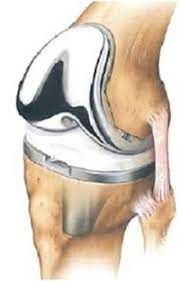Benefits of Preoperative Physiotherapy Programs prior to Total Knee Arthroplasty
Many patients will undergo Total Knee Arthroplasty (TKA) in the hopes of gaining better functional outcomes in terms of pain levels, range of motion & functional activity performance post operatively. Although, the extensive physical therapy rehab required post-op is often emphasised amongst specialists in order to get the desired results, the wide array of benefits of pre-operative physical therapy programs for patients suffering from long term knee OA and therefore, requiring a TKA, are often underestimated. Furthermore, the literature shows very good evidence for undertaking preoperative physiotherapy at least 4 weeks prior to the operation for an advantageous result in a variety of different outcomes. These include clinically significant changes in post operative functional activity levels on specific outcome measures after 3 months, better scores in terms of pre-operative pain levels, a decreased reliance on taking analgesics postoperatively and an overall lower cost in returning to the patient’s functional goals & managing postoperative pain.
Who needs a TKA?
TKA is a common surgical technique performed on those suffering from chronic Knee Osteoarthritis (OA). Knee OA will present as a progressive, degenerative loss of articular joint cartilage on imaging. Patient’s physical presentation will commonly consist of stiffness in the early morning, clicking/crepitus of the knee, loss of Range of Motion (ROM), swelling, pain that is worse after prolonged inactivity and often responds well to heat in terms of ROM. Given the nature of OA, it’s prevalence will increase as life expectancy and obesity rises.
Preoperative and Conservative Management
Given the nature of the condition identified above the Royal Australian College of General Practitioners (RACGP) have outlined a very clear management plan for OA. This guideline aims to promote healthy living and minimise sedentary behaviour before opting to go down the surgical path. Evidence shows there are many benefits to delaying the need to undergo surgical intervention for OA.
The most important management of OA is lifestyle factors/changes. This consists of Weight Management through diet and exercise. The most desirable exercise is low load land based exercise such as walking, stationary cycling, tai chi, resistance training and yoga. Aquatic exercise is also extremely beneficial.
Other adjunct treatments can include footwear modification, mobility aid prescription, manual therapy, massage, acupuncture/dry needling, heat pack education, NSAID’s via liasing w/ GP & cognitive behavioural therapy treatments complimentary to exercise in order to improve mood and mental health.

